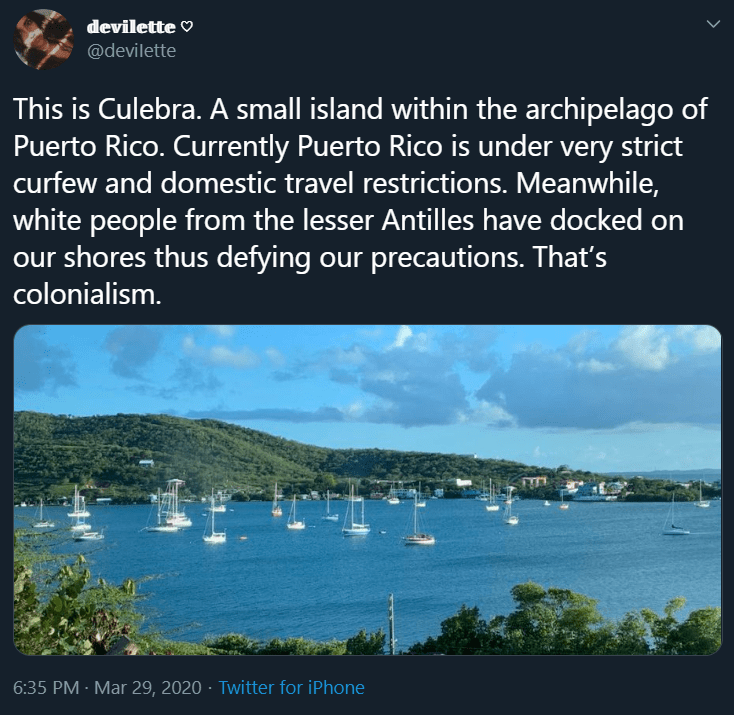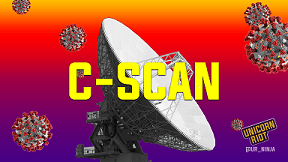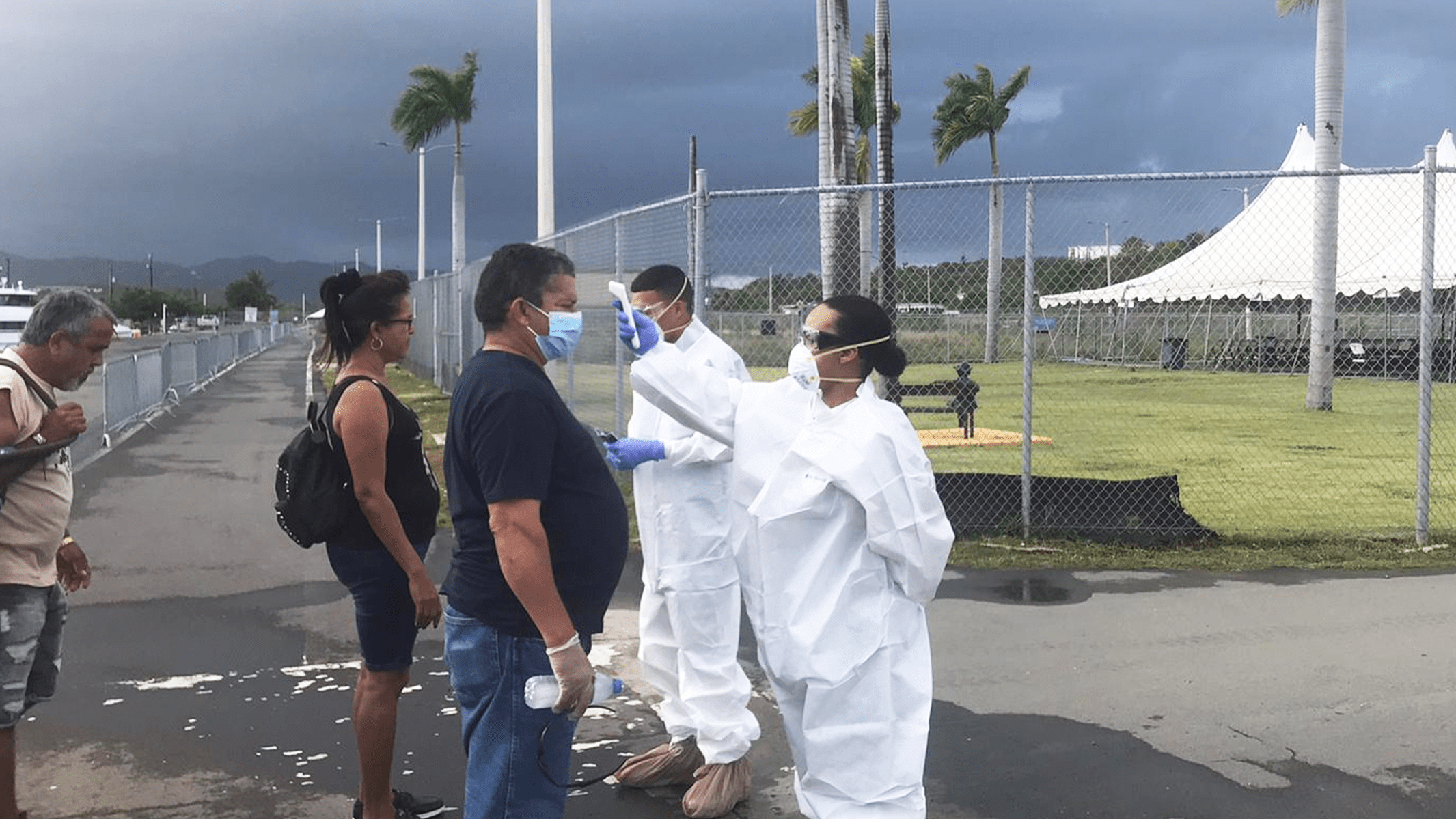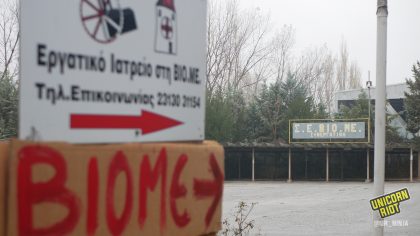Coronavirus in the Caribbean: COVID–19 Update from Puerto Rico
Guánica, Puerto Rico – The Caribbean archipelago, not yet fully recovered from 2017’s devastating Hurricane Maria, has been experiencing daily tremors for over 95 days on its southern shore. Now, yet another threat is making its way across the main island — the highly-infectious new coronavirus.
The first known case in Puerto Rico was an Italian tourist who had traveled with her spouse from Florida to Puerto Rico, arriving on Sunday, March 8. Though she showed symptoms of pneumonia, her husband was asymptomatic. The Costa Luminosa cruise ship departed that same evening, having de-boarded up to 40% of its passengers on the island and still carrying about 2,500 people.
The second known case was an 87-year-old veteran with underlying health conditions. He has since recovered from COVID–19 and was discharged from the hospital.
As of April 2, 316 people in Puerto Rico have tested positive for COVID–19 and 12 have died. The peak of infections is estimated to come after the first week in May, according to the new Secretary of Health Department Lorenzo González.
At first, testing across the United States was restricted to those with a recent travel history, but by March 4, the CDC had updated its recommendation that all U.S. hospitals perform tests of symptomatic patients at their discretion.
Just as in the mainland United States, non-essential businesses have been closed in Puerto Rico and residents are supposed to stay at home except for food and essential services.
One resident told Unicorn Riot that “everything is closed just like out there but since I work for the government I’m still getting paid,” in contrast to others in the private sector who are not receiving pay during this time.
However, Puerto Rico’s stay-at-home orders are stricter than in other U.S. locations. There is concern that their healthcare system, still fragile post-Maria, could easily be overwhelmed by a pandemic. Five police stations have closed this week across the main island, citing a lack of protective equipment for officers.
A COVID-related curfew starting at 9 p.m. and lasting until 5 a.m. every night since March 15 now begins at 7 p.m. after a March 30 order by Puerto Rico’s Governor Wanda Vázquez Garced. The curfew will remain in effect through at least April 12. Grocery stores have been closed on Sundays, and vehicular traffic is restricted so that fewer vehicles are on the road at any given time.
FEMA has been aiding survivors of the earthquakes since January; some residents were still sheltering in group tents as of late February. In accordance with the governor’s order to shut down “non-essential” operations, the agency has suspended its in-field Disaster Recovery Center operations until April 12. FEMA asserts its personnel in Puerto Rico “will continue to work on the island to support survivors,” through answering phone calls or through internet-based aid.
Since March 15, there has been reports of increased rates of gender-based violence and femicides during the hours of curfew in Puerto Rico. One writer questioned why the murder of women in Puerto Rico isn’t considered an emergency.
View this post on Instagram
Unfamiliar sailboats circling the southern coast alarmed San Jacinto community residents when they observed the boats attempting to dock in neighboring towns off the coast of Guánica, the epicenter of the January 7 6.4 M earthquake.
Municipal mayor Santos Seda Nazario took swift action to have the boats removed from the area, as well as to remind local authorities to not allow vessels of unknown origin to dock on Guánica’s coasts, the site of the continuous quakes.

In a written communiqué on April 1, the southern mayor explained that this is no time for tourism, and much less so when such boats may be carriers of COVID–19. He added that the town has suffered enough from the earthquakes “para tener que pasar por más situaciones tristes y dolorosas” (to have to go through more dismal and painful situations).
“Estamos en cuarentena y eso incluye el no recibir a nadie en nuestras costas (We’re in quarantine and that includes not receiving anyone on our shores).” — Santos Seda Nazario, Mayor of Guánica
Various access roads surrounding the municipality of Caguas will be closed starting Friday, April 3, restricting access to essential activities that have been authorized by the government.
The day before, on March 31, more than 100 health care workers in the Salud Integral en la Montaña were suspended from their healthcare jobs for 62 days. The temporary suspension could be shortened or lengthened depending on the progression of the COVID–19 crisis, according to the private non-profit hospital.
A letter sent to SIM employees specifies that since they were not being terminated, the hospital would retain the right to recall them to work without having to deal with legal ramifications of termination.
Salud Integral de la Montaña (SIM) suspende de empleo y sueldo a todos sus empleados por 62 días.
Aquí la carta publicada en redes y en @radioislatv compartieron el audio de un enfermero que denuncia la situación en FB. pic.twitter.com/qonpgMI2s0— Milly Méndez (@MillyMendezpr) April 1, 2020
Emergency Room nurse Eric Martínez González claims that over half of the ER nurses were affected by the suspension, asking how the country could think people would want to continue on in Puerto Rico,
“si están despidiendo a las pocas personas que puedan luchar contra esta enfermedad” (if they’re laying off the few people that are able to fight against this illness).
As the highly-infectious coronavirus continues to impact communities worldwide, our small organization of media-makers will provide periodic updates on a variety of topics related to the pandemic.
Cover image: Members of the Puerto Rican National Guard screen passengers for COVID–19 before permitting them entry to Puerto Rico. Image courtesy of the National Guard (Creative Commons 2.0)
Unicorn Riot's COVID–19 Coverage:

- “Brazil is Asking for Help” – Artists and Activists Speak Out - April 10, 2021
- Brazilian Pandemonium: COVID-19 Kills Over 300K - March 27, 2021
- COVID-19 Deaths in Minnesota Prisons Continue to Rise - February 17, 2021
- Brazil Nears 200K Deaths as Politicians Continue to Downplay COVID-19 - December 20, 2020
- Winter of Coronavirus: Seeking Shelter in Minneapolis During COVID–19 - December 14, 2020
- Denver Sweeps 300+ Tent Encampment Residents - November 30, 2020
- Unhoused Community Forms Tenants Union, Constituents Protest at Commissioner’s Home - November 11, 2020
- Minneapolis Prioritizing Park Sweeps Over Sheltering the Unhoused - October 29, 2020
- Court Protest Aims at Boston Covid Housing Crisis - October 29, 2020
- Philly Starbucks Worker Delivers NLRB Unfair Labor Practice Complaint - October 15, 2020
- Demands Reignite for Releases from GEO ICE Jail Amid New Covid Outbreak - October 5, 2020
- Peavey Park Sanctuary Homeless Camp Evicted in Minneapolis - September 24, 2020
- New Month Brings Added Urgency To Minneapolis’ Housing Needs - September 2, 2020
- COVID–19 Testing DeMystified at Community-Informed Coronavirus Testing Site - August 29, 2020
- Sanctuary Camp Residents Pressured to Move, No Housing Solution In Sight - August 22, 2020
- Coronavirus, Corruption, and Resistance: Life Under South Africa’s Lockdown - August 17, 2020
- Authorities Visit Loring Park Tent Encampment, Bring Eviction Scare - August 10, 2020
- Minneapolis Park Police Displace Sanctuary Encampment - July 22, 2020
- Homeless Philadelphians Moving Into Vacant City-Owned Homes - June 22, 2020
- Encampment to ‘Free Them All’ Outside GEO ICE Detention Center - May 26, 2020
- The Coronavirus Crisis in Brazil – An Interview with EmiciThug - May 22, 2020
- Nurses Picket Over Lack of Protection From Ongoing Viral Pandemic - May 21, 2020
- Mutual Aid to Detained Refugee Women Grows — Coronavirus in Greece Part 3 - May 7, 2020
- Minneapolis May Day Protest Supports Essential Workers - May 2, 2020
- MN Demonstrations, Demands to Free Prisoners Escalate - April 30, 2020
- Denver ‘Clean-ups’ Displace 100+ Unhoused Residents Amid Health Crisis - April 30, 2020
- Worker-Occupied Factory Sends Soap to Refugee Camp – Coronavirus in Greece, Part 2 - April 28, 2020
- A Country Quarantined, Coronavirus in Greece Part 1 - April 25, 2020
- Who’s Calling to ‘Liberate Minnesota’, and Why? - April 21, 2020
- Living with COVID–19 - April 17, 2020
- Philly Mayor and Judges Pressured To Release Inmates From Jail - April 15, 2020
- Calls for Rent and Mortgage Freeze Outside MN Legislature - April 14, 2020
- What Is Coronavirus and How Do Humans Defeat It? - April 10, 2020
- Car Protest Demands Philadelphia Officials Release Prisoners To Save Lives In Pandemic Crisis - April 10, 2020
- ‘Cancel Rent’ Demo Calls for a Rent and Mortgage Payment Freeze as COVID-19 Spreads - April 9, 2020
- Coronavirus in the Caribbean: COVID–19 Update from Puerto Rico - April 2, 2020
- ‘Never Again’ Demo Demands Release of Detainees Amidst COVID–19 Pandemic - March 30, 2020
- South Africa Under Lockdown as COVID–19 Spreads - March 29, 2020
- Providing Mutual Aid Amidst the Coronavirus Pandemic in Minnesota’s Twin Cities - March 27, 2020
- As U.S. Coronavirus Cases Top the World Charts, Minnesotans’ “Stay at Home” Order Goes Into Effect - March 27, 2020
- “Everyone Deserves A Cost-Of-Living Adjustment”: Interview with UCSC Striker Yulia Gilich - March 26, 2020
- ‘Real boog hours’: Neo-Nazi Terror and the Coronavirus Crisis - March 20, 2020
- Coronavirus Concerns End St. Paul Educators Strike, Close Many Public Schools - March 14, 2020
Follow us on Twitter, Facebook, YouTube, Vimeo, Instagram, and Patreon.
Please consider a tax-deductible donation to help sustain our horizontally-organized, non-profit media organization:



